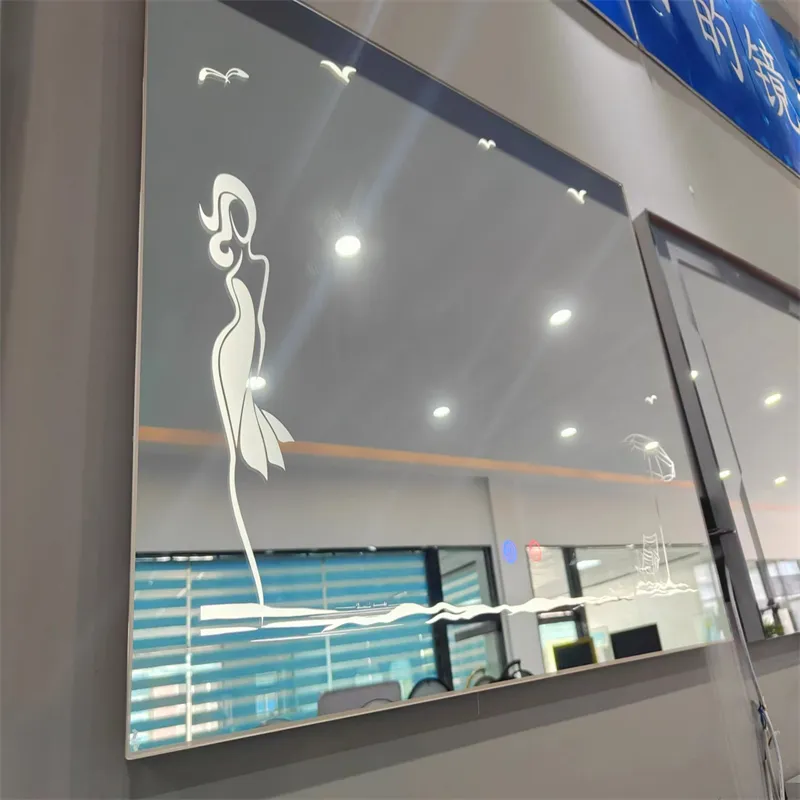Dec . 21, 2024 11:17 Back to list
flat transparent sheet glass
The Versatility of Flat Transparent Sheet Glass
Flat transparent sheet glass is an essential material in both industrial and domestic settings. With its unique properties and wide range of applications, it has become a staple in architecture, interior design, and manufacturing. This article delves into the characteristics, manufacturing processes, advantages, and innovative uses of flat transparent sheet glass.
Characteristics of Flat Transparent Sheet Glass
One of the most notable features of flat transparent sheet glass is its clarity. The ability to allow natural light to pass through while providing a clear view is a significant advantage. This transparency not only enhances the aesthetic appeal of spaces but also contributes to energy efficiency by reducing the need for artificial lighting during daylight hours.
Additionally, flat glass is typically smooth and can be produced in various thicknesses, ranging from a few millimeters to several centimeters. This versatility allows it to be used in different contexts, from greenhouse panels to high-rise building facades. Furthermore, it is resistant to chemical weathering and UV rays, ensuring durability in outdoor applications.
Manufacturing Processes
The production of flat transparent sheet glass involves several key steps, starting with the melting of raw materials such as silica sand, soda ash, and limestone. The mixture is heated to high temperatures (around 1,700 degrees Celsius) in a furnace until it turns into a molten state. The molten glass is then formed into sheets using various techniques.
One common method is the Float Glass Process, where the molten glass is floated on a bed of molten tin to create a smooth, flat surface. After cooling, the glass is cut into sheets of desired sizes. Other methods include casting and rolled glass production, which can yield different surface textures and thicknesses.
Quality control is paramount in the manufacturing process. Each sheet is inspected for imperfections, ensuring that only the highest quality is delivered to consumers. This attention to detail is crucial, especially when the glass is intended for safety-critical applications like automotive windows or building facades.
flat transparent sheet glass

Advantages of Flat Transparent Sheet Glass
The benefits of flat transparent sheet glass extend beyond its aesthetic qualities. Its strength and durability make it an excellent choice for structural applications. When treated or laminated, it can withstand significant impact, making it suitable for use in safety glass for vehicles and buildings.
Moreover, the glass can be easily customized through processes like tempering, coating, and lamination. This customization enhances its thermal and acoustic insulation properties, providing added comfort in residential and commercial buildings. The ability to incorporate coatings that reflect UV rays or improve energy efficiency is particularly beneficial in today’s climate-conscious world.
Innovative Uses
As technology advances, so do the applications of flat transparent sheet glass. In architecture, glass facades are increasingly popular, merging form and function while allowing for natural light to illuminate interiors. Smart glass technologies have emerged as game-changers, enabling users to control transparency and light transmission with the flick of a switch, thus enhancing comfort and privacy.
In addition to architectural uses, flat transparent sheet glass finds its place in various industries. It is utilized in electronic displays, mirrors, and solar panels, seamlessly enhancing modern living and technology. The art world also benefits from glass; many artists use sheet glass as a medium for sculpture, creating intricate designs that play with light and reflection.
Conclusion
Flat transparent sheet glass is a remarkable material that combines beauty, functionality, and versatility. Its ability to adapt to various applications has made it indispensable across multiple industries. As we move towards a more sustainable and innovative future, the uses of flat transparent sheet glass are likely to expand further, solidifying its status as a fundamental component in modern design and technology. Whether in a skyscraper or a smartphone, the transparent glass is indeed a window to our world.
-
Safety and Style with Premium Laminated Glass Solutions
NewsJun.24,2025
-
Reinvents Security with Premium Wired Glass
NewsJun.24,2025
-
Premium Float Glass Line for Modern Architecture
NewsJun.24,2025
-
Low Emissivity Glass for Energy-Efficient Architecture
NewsJun.24,2025
-
High-Performance Insulated Glass Solutions for Modern Architecture
NewsJun.24,2025
-
Elevates Interior Style with Premium Silver Mirror
NewsJun.24,2025
Related PRODUCTS














